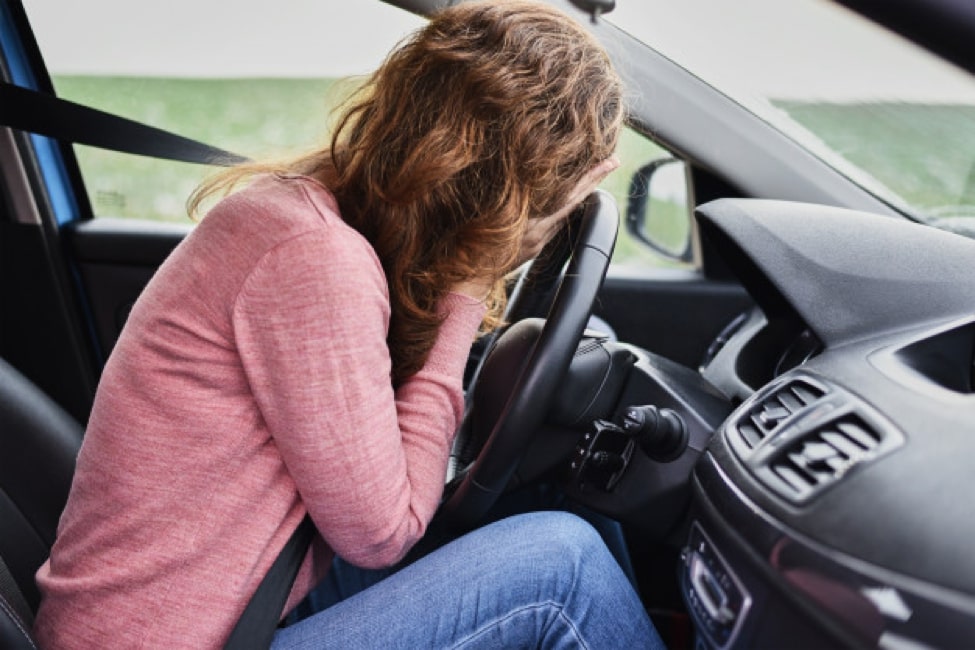Anxiety is very common in our society. There are a lot of things that make people anxious or fearful. Have you ever faced driving anxiety and/or seen someone face it? If yes, then you must have a clear idea of how this anxiety could affect you in various ways. It won’t be wrong for me to say that driving is now a fundamental necessity. You don’t always have a taxi or someone else to give you a ride to your destination. Whether driving to college, university, or your workplace, driving anxiety will always pull you back, not allowing you to come out of your fear.
Therefore, in this article, you’ll read about what driving anxiety is, what the symptoms are that will let you know that you are facing it, and what ways there are that will help you manage your driving anxiety. Let’s dive in!
What Is Driving Anxiety?
Driving anxiety is a type of anxiety where the severity may range from a hesitation to drive, to complete refusal of driving. For most people, driving next to a huge lorry, driving on dual-carriageways, or merging on the motorway can be a nail-biting experience.
Symptoms of Driving Anxiety
The symptoms of driving anxiety are similar to any of the other forms of anxiety. Symptoms such as perspiration, heart palpitations, sweaty palms, confusion, dizziness, dry mouth, disorientation, shortness of breath. It is somewhat a ‘fight or flight response.’ To such people, it seems that they’ll either die or go crazy. For these reasons, people usually avoid driving in order to avoid those intense feelings that scare them.
Here I’m sharing some tips that will help you overcome your driving fear and anxiety so that you may feel safe, confident, and comfortable to get back on the road. If you are avoiding driving these days due to fear then its recommended to take help of a good therapist or hypnotherapist so you may start resuming your driving.
If you avoid driving over and over again, then this driving anxiety can turn into a phobia. Once this happens, it will be more difficult for you to get back on the saddle. Therefore face it, and if you’ve ever felt comfortable during driving, then its good news because you’ve learned something. Below are some tips that will help you manage driving anxiety.
11 Highly Effective Tips to Manage Driving Anxiety Efficiently
1. Some Fundamentals:
First of all, if you are on an empty stomach, then avoid driving. Also, analyse yourself about your feelings towards driving after eating food such as bread, soft drinks, and pastries high in sugar. Moreover, if you had alcohol the night before, then it could also cause blood sugar imbalances. Another important thing, if you’re sleepy and then begin driving, it means you’re merely inviting trouble for yourself
2. Avoid Caffeine Before Driving to Cope with Driving Anxiety:
Caffeine intake is known to trigger anxiety. If you are about to drive after a while, don’t get yourself caffeinated. It will definitely give you relief from the anxiety of driving.
3. Engage in Talking but with Caution:
Remember that anxiety is all about your thoughts. To divert your attention from negative thoughts that ultimately leads you to anxiety, you may have a conversation with the passenger sitting beside you. Talking will help your mind think beyond anxiety. But be careful because not everyone’s alike. Some people get distracted while driving; therefore, you have to be very careful about this.
4. Stop Thinking That You’re the Only One:
Many of you dealing with driving anxiety think themselves as weird as if you are the only one to face such an issue. Whenever such a thought comes to your mind, remind yourself that many people face driving anxiety and are on the road to deal with it.
5. Practice and Desensitise Yourself to Driving Anxiety:
Thinking of practice may feel uncomfortable for you, but it is actually a way to resolve your anxiety issue. People usually avoid it under their driving fear until they forcefully had to drive under emergency circumstances, and at that time, managing your anxiety is pretty hard. You can practice driving in your free time.
What you have to do is sit in a parked car with an open engine; this is the first step. Train your mind for it. After a while, when you feel a little comfortable, drive your car to a nearby stop. If again, anxiety arouses, then stop, breathe, and start again when you feel better. In this way, you actually desensitise yourself against driving anxiety.
6. Investigate The Root Cause of Your Anxiety:
People have driving anxiety due to various reasons. The reason for my driving anxiety may be different from yours. Some may have a slow reaction time, not being able to react quickly to changing scenarios while driving. Some may be highly sensitive, such as the fast-moving traffic. Many people are anxious about being watched by people while driving.
Many people fear driving due to either witnessing previous accidents or being a part of them. In fact, people who have been in accidents are more likely to develop driving anxiety. So you see different reasons which means there are different ways of solving the problem. Here are some top ideas for driving anxiety. Check this out. What’s your reason for having driving anxiety? Find it, and work to overcome it.
7. Stress Management:
Anxiety is related to stress for a more extended period of time. Lower your stress by regular exercise, yoga, meditations, taking breaks in between your work. Stress management will help you overcome your anxiety.
8. Assertions:
Another way to manage your anxiety is to write positive affirmations. Handwritten assertions that you can drive with ease, being comfortable without being anxious. Write that you are calm and relaxed while driving. Read that script before going to bed and after waking up. Imagine yourself doing what you’ve written. It may seem an underrated act, but following this will surely help you overcome your anxiety.
9. Present Mindedness:
Anxiety could also be managed when you’re thinking the same negative things repeatedly. Practice mindfulness, meaning you should be fully aware of your thoughts. Stay at the present moment. To practice this, you may start listing five things that you hear and see. It will help you stay away from the negative ‘what if’ thoughts, which lessens or diminishes your anxiety.
10. Appreciate Yourself:
Whenever you had a drive, remind yourself that you’ve done it. Either driving on a motorway or making it out of heavy traffic, appreciate yourself for it. Keep reminding yourself that you are safe and you can do very well.
11. Prepare A Comforting Playlist:
The best way to distract yourself from anxiety is to listen to your favourite music. Prepare a playlist of music that comforts you and provides you a peaceful mind. Although, some people may get distracted from driving while listening to music so do what’s better for you.
Conclusion:
Up till now you must have got some useful tips to manage your driving anxiety. The most important thing to remember is; you can’t overcome any of your fear or anxiousness unless you face it. Practicing repeatedly will make you used to that anxiety, ultimately making you desensitised against the anxiety. Music, talking, being present-minded and optimistic affirmations are some ways to overcome your anxiety. Be calm and make your progress slowly and steadily, and you’ll see your fear going away. Happy, relaxed driving!
Feel free to contact Fast Pass Driving School if you need professional help in overcoming your driving anxiety.
Also Read: Driving Test Faults
How useful was this article for you? Your feedback will be much appreciated in the comment section below!



